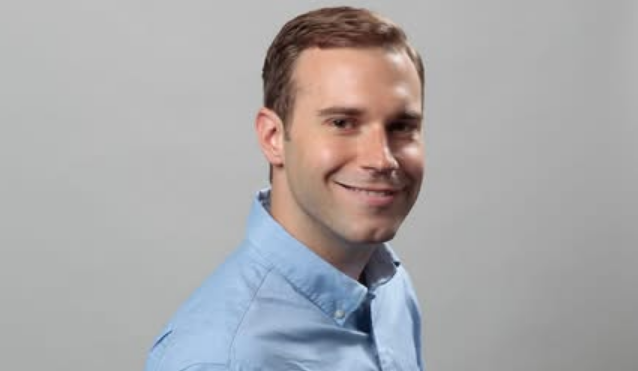
The house we now live in is one that this country has never lived in before. All the time, money and effort expended by our political elites have produced two dismal presidential candidates. Although we are and should be deeply angry about this “choice” it is – I submit –a symptom of a deeper disease, and not the disease itself. Which is instead encapsulated in the unspoken answer to a fundamental question that is not being asked.
That question is this – are we going to walk away from what we know to be true and replace it with what we know to be false?
Let’s keep this as simple as it actually is.
Republicans have been telling us for almost four years that the 2020 election was a fraud. We are also now being told that the January 6th participants were actually heroes.
First, the “fraud.” If the election was fraudulent, then a principled politician would consider it null, void, and against the will of the people. Yet not one Republican member of Congress who won in 2020 has resigned. Nor has one suggested that they were fraudulently elected.
And we know what we saw on January 6th. We watched those “heroes” in real time with our own eyes rampage though, desecrate, and defecate in the Capitol in a riot.
Many Democrats (but not all) are walking that same surreal path on a parallel road. Their own dance macabre is a dreary opportunistic political calculation about whether to acknowledge what we saw during the debate actually happened.
How do we know that it did? Well, for the last few years, Biden’s team (who obviously know him quite well) would not let Biden hold uncurated press conferences. Not one. Biden also bizarrely walked away from an opportunity to reach 123 million Americans in an election year, for free, when he declined to be interviewed at halftime during the 2024 Superbowl. And then, of course, there is the ninety straight minutes of incoherence that we watched in real time with our own eyes just two weeks ago.
Leaving us with this dilemma. We know what we saw on January 6th and two weeks ago and we know what it means. And neither of our “choices” (or those who support them) will acknowledge it.
Because most of us are not reckless idiots, we have difficulty getting our minds around the serial lies of Trump and his pack of hyenas. By contrast, many of us have had to deal with an elderly family member like Biden who is palpably losing mental acuity. It is squarely within our batter’s box.
Joe Biden’s entire life is certainly not defined by “one bad night.” But we know from our own life’s experience that his future certainly is. Is Biden incoherent every minute? I doubt it. We don’t actually know because his team won’t tell us, and Biden refuses a cognition test for reasons that cannot be other than the wrong reasons. Regardless, with time Biden won’t get any better. Some people age seamlessly. Biden is not one of them. Not at 81, and not at 86 (which he would be the end of a second term). It looks quite bad now and will only get worse.
Well – we are told – Biden had a cold during the debate. He was jet lagged. He didn’t prepare properly. Trump distracted him. Biden recently told George Stephanopoulos that he can’t remember if he watched a recording of this debate debacle. Biden really should watch, if for no other reason than to see what the rest of us saw.
Then there are the “practical” obstacles. There is not enough time. The funds Biden raised cannot be transferred. His delegates can’t switch. I am no election expert. Indeed, why would anyone now choose to be one? But I have read articles by people who claim they are, and they have explained how each of these obstacles can be overcome.
As for electability? Biden may be the only Democrat (unless they run a progressive) that Trump can beat; and likely will. Recall that the nation did not rally to Joe Biden in 2020 out of enthusiasm. He was losing badly until Clyburn delivered South Carolina. Not until Biden emerged as a viable alternative to Elizabeth Warren and Bernie Sanders was he embraced. And not as Joe Biden, but instead as an alternative to them.
It is also being said that Biden must agree to step down and he won’t. Actually, no. Biden doesn’t have to agree. He can be forced out by his party and by his supporters. When I knew that it was no longer safe for my Dad to drive, I didn’t ask him for the keys or try to persuade him to give them to me. I took them. It hurt. I loved my Dad and knew I was stripping him of his independence and a degree of his personal dignity. Yet it had to be done.
That did not make me a “bedwetter” or panicky. It was part of what it means to be a man, an adult, and a son. Hard, but fundamentally important.
Trump probably is much worse than even a diminished Biden. But that is a false comparison. People don’t want Trump. They want something much better. We no longer know whether Biden can adequately function as President, and it escapes me how what has been suggested as plan B – letting Biden’s team run the country with Biden as a figurehead – would be better. Because the last time I checked, our system of government required a functioning President selected by, and accountable to, the voters. It’s called an election.
Leaving us where exactly? There is very little rope left. We now have to rely on the same feckless political insider class that got us into his mess to get us out of it. It’s not a bet that I would ordinarily take. But these are not ordinary times.
It is now up to us to make them do what is right for the country, and we must press them to do so. Hard. So – call or write to your Democratic representatives today, and ask them the question that must be answered – are we going to walk away from what we know to be true and replace it with what we know to be false? And when you ask, make it crystal clear that you require the right answer.
Because a house divided against itself cannot stand. But neither can one that is built on sand.
(Visited 90 times, 94 visits today)
Asking the right questions is a crucial skill that can lead to better answers in any situation. Whether you are conducting an interview, solving a problem, or seeking information, knowing how to ask the right questions can make a significant difference in the quality of the responses you receive.
One of the key benefits of asking the right questions is that it can help you gather more relevant and useful information. By asking specific and targeted questions, you can steer the conversation in a direction that will provide you with the information you need. This can help you make more informed decisions and solve problems more effectively.
Asking the right questions can also help you uncover hidden insights and perspectives. By asking open-ended questions that encourage people to share their thoughts and experiences, you can gain a deeper understanding of a situation or issue. This can lead to new ideas and solutions that you may not have considered otherwise.
In addition, asking the right questions can help you build stronger relationships with others. By showing genuine interest in what someone has to say and asking thoughtful questions, you can demonstrate that you value their input and perspective. This can help foster trust and collaboration, leading to more productive and meaningful interactions.
So how can you ensure that you are asking the right questions? Here are a few tips to keep in mind:
1. Be clear about your objectives: Before you start asking questions, make sure you have a clear understanding of what you are trying to achieve. This will help you tailor your questions to gather the information you need.
2. Ask open-ended questions: Instead of asking yes or no questions, try to ask open-ended questions that encourage people to share their thoughts and experiences. This can lead to more insightful and detailed responses.
3. Listen actively: Pay attention to the answers you receive and ask follow-up questions to clarify or delve deeper into a topic. This will show that you are engaged and interested in what the other person has to say.
4. Be curious: Don’t be afraid to ask probing questions that challenge assumptions or explore new ideas. This can help uncover new insights and perspectives that may lead to better answers.
By honing your questioning skills and asking the right questions, you can unlock new possibilities, gain valuable insights, and build stronger relationships with others. So next time you find yourself in a situation where you need answers, remember the power of asking the right questions.



